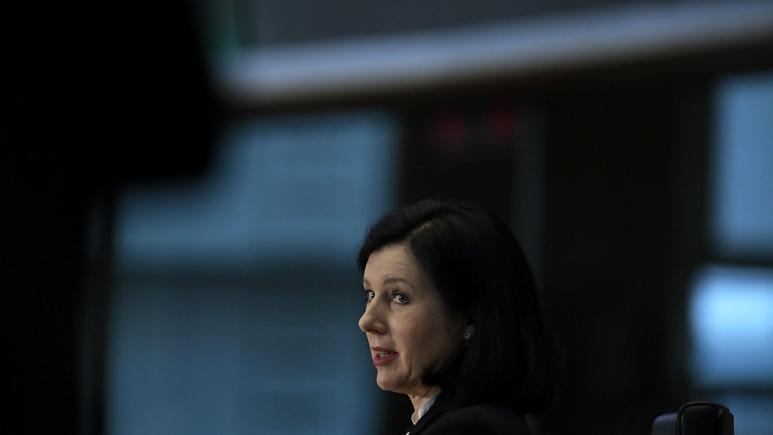OPINION: Russia’s snark may have pushed West too far

It was a prime example of one of Russia's favorite techniques for responding to attacks from the West: snark. A bumptious brew of mockery, sarcasm, even juvenile humor, weaponized for propaganda purposes.The reason for the diplomatic expulsions was the poisoning of a former Russian double agent living in the UK. Even as Sergei Skripal — and his daughter, Yulia, who also was poisoned — lay in the hospital, Russian Foreign Ministry spokeswoman Maria Zakharova mocked the UK's report to the House of Commons on the attack: "It's a circus show in the British Parliament," Zakharova snapped.The Russian Embassy in London's official Facebook page sported a photo of a thermometer stuck in ice,with the mercury hitting below zero, along with a caption about plunging Russian-UK relations saying that "we are not afraid of cold weather."Moscow's snarkiness, however, could be backfiring. Announcing that Britain would expel 23 Russian diplomats in retaliation for the Skripal poisoning, Prime Minister Theresa May focused on the tone of Moscow's response to the accusations, claiming it had "demonstrated complete disdain for these events.""They have provided no credible explanation," Maysaid. "Instead they have treated the use of a military grade nerve agent in Europe with sarcasm, contempt and defiance."One Western official who tracks Russia's use of propaganda says Moscow's tactics with the Skripal poisoning are similar to what it did with the furor over Malaysia Airlines Flight 17, a passenger flight shot down in 2014 over eastern Ukraine, for which Moscow was blamed."They came up with a thousand different theories, all of them are ridiculous and ludicrous," this official tells me, "but they're so good at distracting people — or trying to do that — that people aren't paying attention to what really happened."With the downing of MH17, Moscow mounted a series of military briefings designed to look both scientific and complex. Officials raised theory after theory, and US and European government agencies set out on a wild goose chase to counter each one, regardless of how dubious it was.During the Olympic doping scandals, Russia took a page from the same playbook: first, spreading chaff with a variety of alternate explanations and, when that failed, accusing the West of "Russophobia," provoking anti-Russian sentiment.With the UK spy poisoning, Russia added another layer of propaganda, launching a well-coordinated campaign of mockery and trolling.When May announced it was "highly likely" Russia had carried out the attack, the Russian Foreign Ministry dreamed up the hashtag #HighlyLikelyRussia and tried to get it to trend. As documented by the Atlantic Council's Digital Forensic Research Lab, it didn't go massively viral, but not for lack of trying. The ministry posted a video of snow in the UK along with the cute title "#HighlyLikelyRussia casted snow on Britain.""It was snarky, but it was incompetent snarky," the Atlantic Council's Ben Nimmo told me. "I think they were aiming at virality, but they weren't getting the recipe quite right."The Russian Embassy in London, known for its trolling, posted a picture of James Bond mocking the idea of Russian spies.Snarkiness can work, Nimmo said. It's seen as a way of getting a bigger audience on social media, he explained. After all, snark is part of how many people communicate virtually. Issuing a boring diplomatic statement might not get much traction, but something edgier might have a better chance of reaching more cynical or more extreme anti-establishment voices who, in turn, might inject that meme or hashtag into the bloodstream of social media.This time though Moscow may have overplayed its hand. Western governments aren't amused; the joke, in the end, may be on Russia.
Original Article
[contf]
[contfnew]

CNN
[contfnewc]
[contfnewc]




